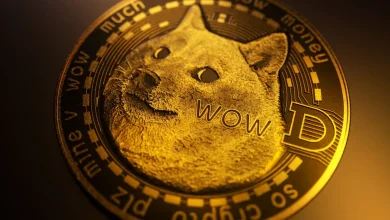Web3 and Real Estate: The Rise of Tokenized Property
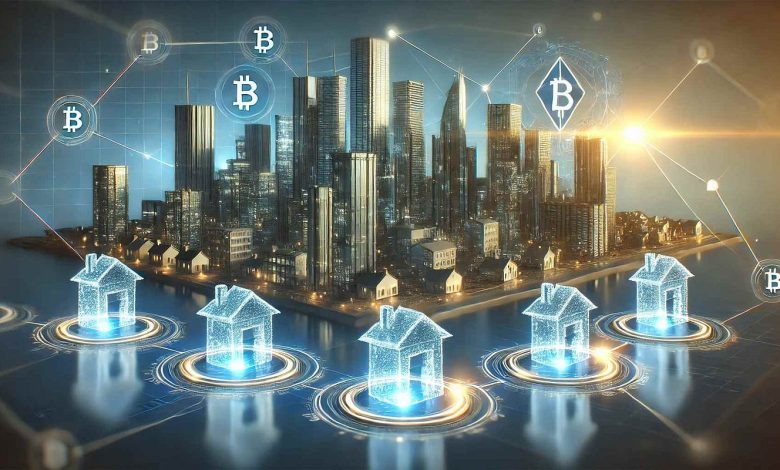
The concept of tokenized property is revolutionizing the real estate market by leveraging Web3 technologies. This powerful innovation allows investors to buy, sell, and trade fractional ownership of real estate assets on blockchain platforms, making property investment more accessible, transparent, and efficient.
In this article, we will explore the rise of tokenized property, how Web3 is reshaping real estate, the benefits and challenges, and real-world case studies to help you understand this exciting development.
What Is Tokenized Property? Web3 and Real Estate Explained
Tokenized property refers to the digital representation of real estate assets as tokens on a blockchain. Each token represents a fraction of ownership, enabling investors to own a piece of a property without buying it outright.
How Web3 Enables Tokenized Property
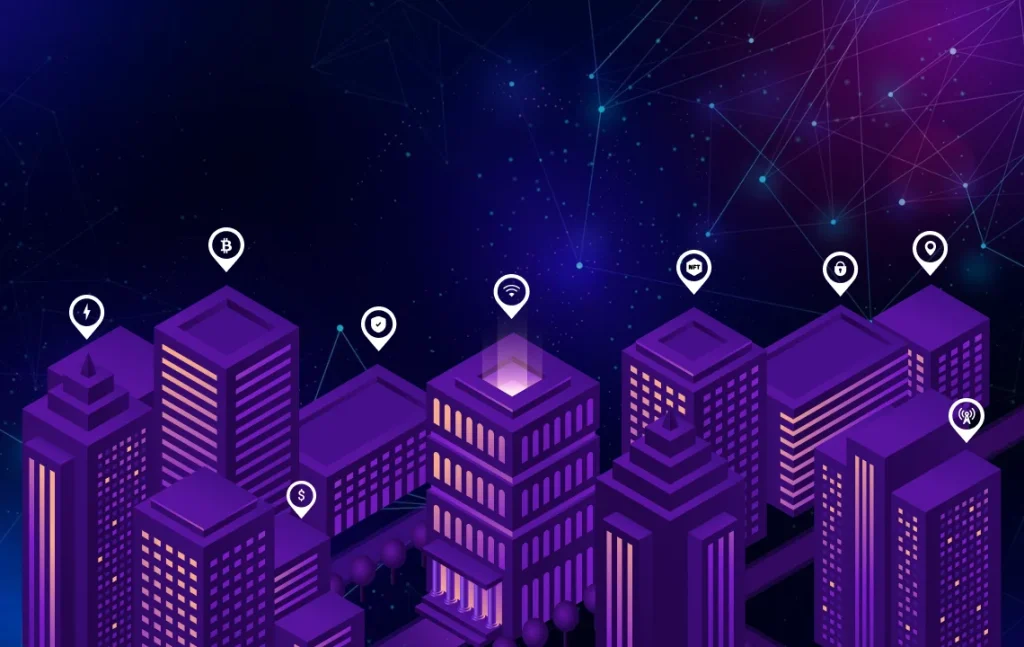
- Decentralization: Ownership and transaction records are stored on a blockchain, reducing reliance on intermediaries.
- Smart Contracts: Automated agreements that execute transactions and distribute dividends securely.
- Fractional Ownership: Investors can buy small portions of expensive properties, lowering entry barriers.
The Benefits of Tokenized Property in Web3 Real Estate
Accessibility and Liquidity
| Benefit | Explanation |
|---|---|
| Lower Investment Threshold | Investors can participate with small amounts |
| Increased Liquidity | Tokens can be traded on secondary markets |
| Transparency | Blockchain ensures clear ownership records |
| Faster Transactions | Smart contracts speed up buying and selling |
Case Study: RealT’s Tokenized Properties in the US
RealT allows investors worldwide to buy fractional shares of rental properties in the US. Token holders receive rental income directly in cryptocurrency, showcasing how tokenized property offers both income and liquidity.
How Tokenized Property Works: Step-by-Step Process
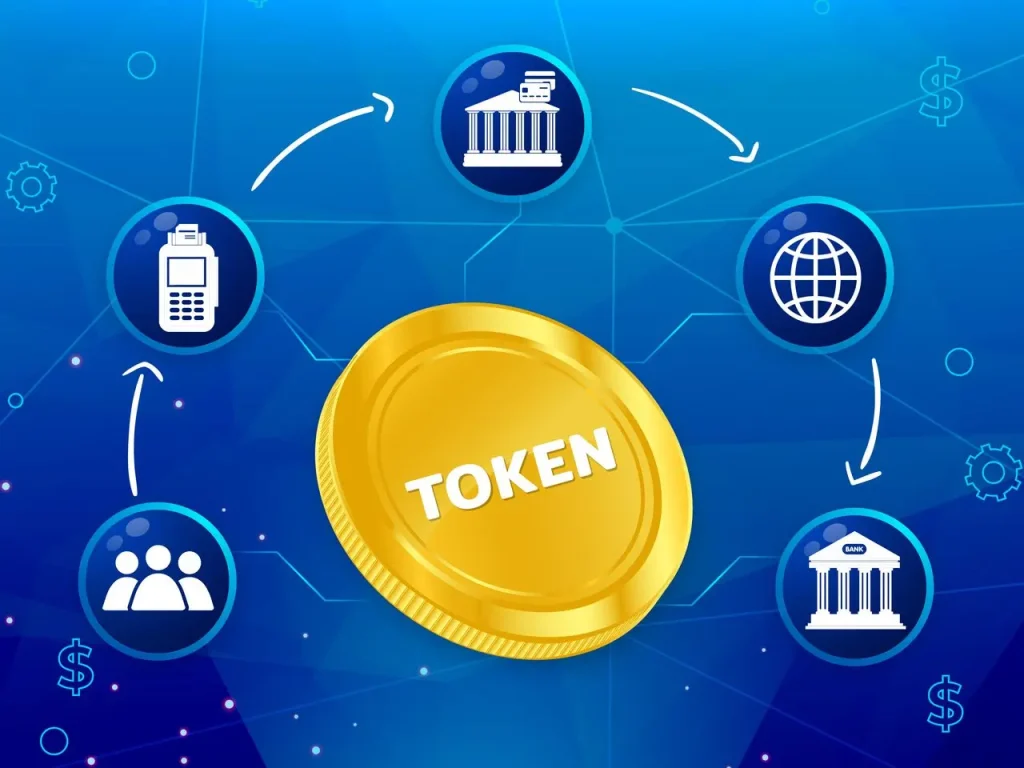
1. Property Acquisition and Tokenization
A real estate asset is purchased and legally structured to allow tokenization. The property is then divided into digital tokens representing ownership shares.
2. Token Sale to Investors
Tokens are sold via a Web3 platform, enabling investors to purchase fractions of the property.
3. Management and Income Distribution
Rental income or profits from property sales are distributed automatically to token holders through smart contracts.
Challenges Facing Tokenized Property Adoption
Despite its promise, tokenized property faces several hurdles:
- Regulatory Uncertainty: Laws around securities and property ownership vary globally.
- Market Education: Many investors are unfamiliar with blockchain and tokenization.
- Technology Risks: Smart contract vulnerabilities and platform security concerns.
- Valuation and Liquidity: Secondary markets for tokens are still developing.
Web3 Real Estate Platforms Leading the Tokenized Property Movement

| Platform | Focus Area | Key Features |
|---|---|---|
| RealT | US rental properties | Direct rental income payouts |
| SolidBlock | Commercial real estate | Institutional-grade tokenization |
| Propy | Global property transactions | End-to-end blockchain transactions |
The Future of Web3 and Real Estate: Trends to Watch
- Integration with Metaverse: Virtual real estate tokenization expanding alongside physical assets.
- Cross-Border Investments: Simplified global property ownership through blockchain.
- Enhanced Regulatory Frameworks: Governments developing clearer rules for tokenized assets.
- Sustainability Focus: Tokenization enabling investment in green real estate projects.
Case Study: How Tokenized Property Enabled Global Investment in a Miami Condo
A luxury condo in Miami was tokenized and offered on a Web3 platform, attracting investors from over 20 countries. Fractional ownership allowed smaller investors to participate, and rental income was distributed monthly via smart contracts, demonstrating the global reach and efficiency of tokenized property.
Technical Foundations of Tokenized Property in Web3
Understanding the technical backbone of tokenized property is essential to grasp how Web3 transforms real estate.
Blockchain Technology and Token Standards
- Blockchain Ledger: All token transactions are recorded on an immutable ledger, ensuring transparency and security.
- Token Standards: Most tokenized properties use Ethereum’s ERC-20 or ERC-721 standards.
- ERC-20 tokens represent fungible shares of a property, allowing fractional ownership.
- ERC-721 tokens are non-fungible tokens (NFTs) representing unique property deeds or rights.
Smart Contracts: Automating Ownership and Payments
Smart contracts are self-executing agreements coded on the blockchain. For tokenized property, they:
- Automate dividend payments such as rental income distribution.
- Enforce ownership rights and transfer rules.
- Enable seamless secondary market trading without intermediaries.
Security Considerations
- Auditing smart contracts is crucial to prevent vulnerabilities.
- Platforms must ensure compliance with data privacy and anti-money laundering (AML) regulations.
Legal and Regulatory Landscape Surrounding Tokenized Property
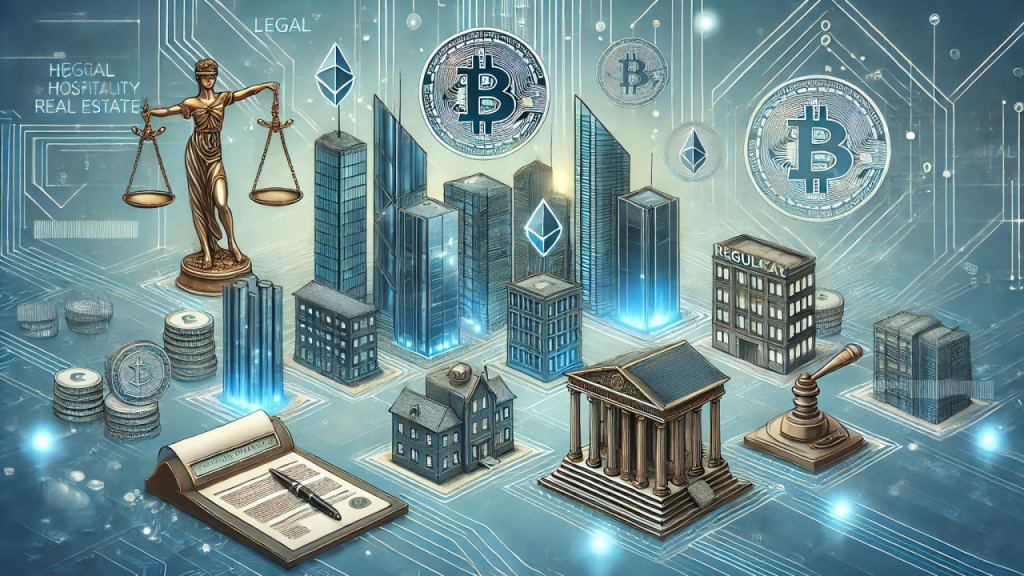
The rise of tokenized property introduces complex legal questions that investors and platforms must navigate.
Securities Laws and Token Classification
- Many jurisdictions consider tokenized property shares as securities, requiring registration or exemptions.
- Compliance with Know Your Customer (KYC) and AML rules is mandatory to prevent fraud.
Property Rights and Token Ownership
- Legal frameworks must reconcile digital token ownership with traditional property titles.
- Some countries have begun integrating blockchain records with land registries.
Challenges in Cross-Border Tokenized Property Investment
- Differing property laws and tax regimes complicate international investments.
- Investors must understand jurisdictional risks and reporting obligations.
Emerging Regulatory Frameworks
- The U.S. SEC and FINRA are actively evaluating tokenized real estate offerings.
- The EU’s Markets in Crypto-Assets (MiCA) regulation aims to clarify crypto asset rules, including tokenized property.
Investment Strategies Using Tokenized Property
Investors can approach tokenized property with various strategies tailored to their goals and risk tolerance.
Diversification Through Fractional Ownership
- Tokenization allows investors to diversify by owning fractions of multiple properties across locations and asset types.
- This reduces risk compared to traditional single-property investments.
Income Generation via Rental Yields
- Token holders receive proportional rental income, often paid in stablecoins or fiat-backed tokens.
- This creates a passive income stream similar to Real Estate Investment Trusts (REITs).
Trading on Secondary Markets
- Unlike traditional real estate, tokenized property can be traded quickly on decentralized exchanges or specialized platforms.
- This liquidity enables investors to capitalize on market movements.
Long-Term Appreciation
- Investors can benefit from property value appreciation, reflected in the token price.
- Some platforms offer buyback or redemption options for tokens.
Environmental and Social Impact of Tokenized Property in Web3

Web3’s influence on real estate extends beyond finance to sustainability and social inclusion.
Promoting Green Real Estate Investment
- Tokenization facilitates funding for eco-friendly developments by attracting global investors.
- Transparent tracking of sustainability metrics is possible via blockchain.
Enhancing Accessibility and Inclusion
- Lower investment minimums democratize property ownership, enabling broader participation.
- This can help address housing inequality by opening new capital sources.
Community Governance Models
- Some tokenized property projects incorporate decentralized governance, allowing token holders to vote on property management decisions.
Case Study: Harbor’s Tokenized Commercial Real Estate Offering
Harbor, a pioneer in tokenized property, successfully tokenized a $20 million commercial office building in Texas. By issuing ERC-20 tokens representing ownership shares, Harbor enabled over 300 investors to participate with minimum investments as low as $1,000.
- Outcome: The property generated steady rental income, distributed monthly via smart contracts.
- Investor Benefits: Liquidity through a secondary market and transparent reporting.
- Challenges: Navigating SEC regulations and ensuring investor accreditation.
The Future Outlook: How Tokenized Property Will Shape Real Estate Markets
Integration with Metaverse and Virtual Real Estate
- Tokenized property concepts are expanding into virtual worlds, where digital land and assets are bought and sold as NFTs.
- This convergence of physical and virtual real estate opens new investment frontiers.
Advances in Legal Tech and Smart Property Contracts
- Future innovations may automate property title transfers, escrow, and dispute resolution using blockchain.
- This will reduce transaction costs and delays.
Increased Institutional Participation
- Large financial institutions are exploring tokenized property to diversify portfolios and improve liquidity.
- Regulatory clarity will accelerate institutional adoption.
Potential Risks and Mitigation
- Market volatility and regulatory uncertainties remain challenges.
- Investors should conduct due diligence and use trusted platforms.
In-Depth Exploration of Tokenized Property Market Dynamics in Web3
The emergence of tokenized property within the Web3 ecosystem has introduced a paradigm shift in how real estate markets function globally. Traditional real estate markets are often characterized by high entry barriers, illiquidity, and complex regulatory frameworks. However, the integration of blockchain technology and tokenization is dismantling these barriers, creating a more inclusive, transparent, and efficient marketplace.
Market Accessibility and Democratization
One of the most transformative impacts of tokenized property is the democratization of real estate investment. Historically, investing in real estate required significant capital, limiting participation to wealthy individuals or institutional investors. Tokenization breaks down these assets into smaller, tradable tokens, allowing retail investors to purchase fractional ownership with relatively low capital outlay.
This democratization is not merely theoretical; it has practical implications for expanding the investor base. For example, a high-value commercial property worth $10 million can be divided into 1 million tokens, each representing a 0.0001% ownership stake. An investor can acquire as few as 10 tokens, making real estate investment accessible with just a few hundred dollars.
Liquidity Enhancement in Real Estate Markets
Liquidity has traditionally been a major challenge in real estate. Selling a property can take months or even years, involving brokers, legal processes, and significant transaction costs. Tokenized property addresses this by enabling secondary market trading of property tokens on blockchain-based exchanges or dedicated platforms.
The ability to trade tokens quickly and with lower fees enhances liquidity, attracting investors who previously avoided real estate due to its illiquid nature. This liquidity also allows for better price discovery and market efficiency, as token prices reflect real-time supply and demand dynamics.
Price Volatility and Market Behavior
While increased liquidity is beneficial, it also introduces new dynamics such as price volatility. Unlike traditional real estate, where prices change relatively slowly, tokenized property prices can fluctuate more rapidly due to market sentiment, macroeconomic factors, and speculative trading.
Investors must understand that tokenized property behaves differently from conventional real estate investments. The market is still maturing, and volatility may present both risks and opportunities.
Comprehensive Legal Frameworks Governing Tokenized Property
The legal environment surrounding tokenized property is complex and evolving. Because tokenized real estate intersects with property law, securities regulation, and emerging blockchain legislation, stakeholders must navigate a multifaceted legal landscape.
Securities Law and Token Classification
In many jurisdictions, tokens representing fractional ownership in real estate are classified as securities. This classification subjects them to securities laws, including registration requirements, disclosure obligations, and investor protections.
For example, in the United States, the Securities and Exchange Commission (SEC) applies the Howey Test to determine if tokens qualify as securities. Most tokenized property offerings fall under this category, requiring compliance with federal securities laws or qualifying for exemptions such as Regulation D or Regulation A+.
Property Rights and Title Integration
A critical legal question is how digital tokens relate to traditional property titles. While tokens represent ownership rights, the underlying legal title to the physical property remains governed by local land registries and property law.
Some jurisdictions are experimenting with integrating blockchain records into official land registries, aiming to create a seamless link between token ownership and legal title. This integration is essential for ensuring that token holders have enforceable property rights.
Cross-Border Legal Challenges
Because blockchain is borderless, tokenized property investments often involve cross-jurisdictional issues. Investors may buy tokens representing properties in countries with different legal systems, tax regimes, and regulatory approaches.
This complexity requires careful due diligence and often the involvement of legal experts familiar with international property and securities law.
Consumer Protection and Fraud Prevention
Regulators are increasingly focused on protecting investors from fraud and scams in the tokenized property space. Platforms must implement robust KYC (Know Your Customer) and AML (Anti-Money Laundering) procedures to verify investor identities and prevent illicit activities.
Detailed Technical Architecture Behind Tokenized Property Platforms
To fully appreciate the power of tokenized property, it is important to understand the technical architecture that supports these platforms.
Blockchain Infrastructure
Most tokenized property platforms are built on public blockchains like Ethereum, Binance Smart Chain, or newer Layer 1 solutions optimized for scalability and low transaction costs.
- Ethereum: The most popular choice due to its mature ecosystem and support for smart contracts. However, gas fees can be high during network congestion.
- Layer 2 Solutions: Platforms like Polygon or Optimism provide faster, cheaper transactions by processing them off-chain and settling on Ethereum.
- Alternative Blockchains: Some platforms use blockchains like Solana or Avalanche for their high throughput and low fees.
Token Standards and Smart Contracts
- ERC-20 Tokens: Fungible tokens representing fractional ownership shares.
- ERC-721 and ERC-1155 Tokens: Non-fungible tokens (NFTs) representing unique property deeds or rights, sometimes combined with fractional ownership models.
Smart contracts automate complex processes:
- Ownership transfers
- Dividend and rental income distribution
- Voting and governance mechanisms
- Compliance enforcement (e.g., transfer restrictions to accredited investors)
Security and Auditing
Given the high value of real estate assets, security is paramount. Platforms conduct rigorous smart contract audits by third-party firms to identify vulnerabilities. Additionally, multi-signature wallets and decentralized governance reduce risks of centralized control failures.
Investment Risk Analysis and Mitigation Strategies for Tokenized Property
While tokenized property offers exciting opportunities, investors must carefully assess risks and implement mitigation strategies.
Market and Liquidity Risk
- Token prices can be volatile due to market sentiment and speculative trading.
- Secondary markets for tokens are still developing, which may limit liquidity in some cases.
Mitigation: Diversify investments across multiple properties and platforms; hold tokens for longer periods to ride out volatility.
Regulatory Risk
- Changes in securities laws or property regulations can affect token legality and value.
- Cross-border investments may face unexpected tax or legal challenges.
Mitigation: Invest through regulated platforms with clear compliance policies; stay informed about regulatory developments.
Technology Risk
- Smart contract bugs or platform hacks can lead to loss of tokens or funds.
- Dependence on blockchain infrastructure means network outages or forks could impact operations.
Mitigation: Choose platforms with audited contracts and strong security records; use hardware wallets for token custody.
Property-Specific Risk
- Physical property risks such as damage, vacancy, or market downturns still apply.
- Token holders rely on property managers and platform operators for asset upkeep.
Mitigation: Review property management quality; assess property location and market fundamentals.
The Socioeconomic Impact of Tokenized Property on Global Real Estate
The rise of tokenized property is not only a technological revolution but also a socioeconomic phenomenon with wide-reaching implications.
Increasing Financial Inclusion
By lowering investment minimums, tokenization enables individuals from diverse economic backgrounds to participate in real estate wealth creation. This democratization can reduce wealth inequality and foster broader economic participation.
Enabling Cross-Border Investment and Capital Flows
Tokenized property facilitates global capital flows into local real estate markets, potentially revitalizing underdeveloped regions. International investors can diversify portfolios without the complexities of traditional property purchases.
Challenges to Traditional Real Estate Models
The rise of tokenization challenges traditional real estate brokers, funds, and financing models. It pushes the industry toward greater transparency, efficiency, and customer-centric services.
Environmental and Social Governance (ESG) Integration
Blockchain transparency allows investors to verify ESG claims of properties, supporting sustainable and socially responsible real estate development.
Case Study: The Tokenization of a Luxury Residential Tower in Dubai
In 2024, a luxury residential tower in Dubai was tokenized on a leading Web3 platform. The project divided ownership into 500,000 tokens, each priced at $200, attracting investors from over 30 countries.
- Investment Outcome: The property generated rental income distributed quarterly via smart contracts.
- Investor Experience: Fractional ownership allowed small investors to access high-end real estate.
- Regulatory Compliance: The platform worked closely with Dubai’s financial regulators to ensure full compliance.
- Challenges: Educating investors on blockchain technology and navigating cross-border tax implications.
Conclusion
The rise of tokenized property powered by Web3 technology is transforming real estate investment by making it more accessible, transparent, and efficient. While challenges remain, the benefits and early successes signal a powerful shift in how we buy, sell, and own property.




